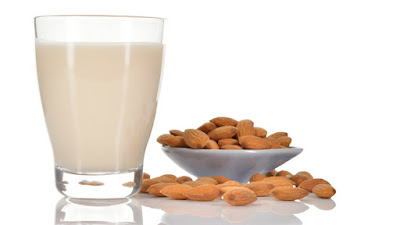DAIRY
DAIRY
1.Milk
The mammary glands of animals produce milk, which is a liquid that is either white or creamy in color. For newborn mammals, it serves as their main source of nutrition, providing them with essential nutrients such as proteins, lipids, carbohydrates, vitamins and minerals. Humans often use milk, especially as an ingredient in making drinks or food. Although cow's milk is the most popular variety consumed by humans, humans also consume milk from other animals, including goats, sheep, and buffalo. Furthermore, milk can be processed to make various dairy products including cheese, yogurt and butter.
2.Cheese
A dairy product called cheese is made by curdling milk and separating the curd from the liquid (whey). Following this, curds are usually pressed, moulded, aged or otherwise handled in a variety of ways to produce a wide range of cheese types with different tastes, textures and appearances. For those who do not consume dairy products or who prefer a vegetarian diet, cheese can also be made from plant-based sources such as soy or nuts. Cheese can be made from the milk of various animals including cow, goat, sheep and buffalo. In addition to being a regular ingredient in many dishes, cheese is often eaten on its own as part of a breakfast or cheese plate.
3.Yogurt
Dairy products such as yogurt are made by fermenting milk with live bacterial cultures. Lactic acid is produced during the fermentation process from lactose (milk sugar), giving yogurt its distinctive sour flavor and thick consistency. Yogurt comes in a variety of flavors and can be eaten by itself, used as a topping or ingredient in meals, or mixed with other liquids to make smoothies or other drinks.
Nutritionally, yogurt is a rich source of calcium, vitamin D and protein. Depending on the type of yogurt and its ingredients, such as flavoring or added sugar, the specific nutritional content may vary. Plain or low-fat yogurt is often an excellent choice for anyone trying to limit excess sugars and cut calories. Greek yogurt is a preferred type that has had most of the liquid ash removed, giving it a thicker texture and more protein than regular yogurt. Also, certain yogurt varieties contain live probiotic bacteria, which can be beneficial to the immune system in general and the digestive system in particular.
4.Kefir
Kefir grains, which are a mixture of bacteria and yeast, are added to milk to make a fermented milk drink. The grains ferment lactose, turning milk into lactic acid, which gives kefir its distinctive sour taste and carbonation. Kefir comes in a range of flavors and can be consumed on its own or as an ingredient in other foods such as smoothies.
In terms of nutrition, kefir is an excellent source of protein, calcium and vitamin D. It may also contain live probiotic bacteria, which may have benefits for the immune system overall and the digestive system in particular. Kefir's low lactose level thanks to the fermentation process may make it easier for certain people who have difficulty digesting lactose to tolerate it. Kefir is also rich in B vitamins and minerals such as magnesium and phosphorus. Kefir, like yogurt, can be made using different types of milk, including cow's milk, goat's milk, and plant-based milk. It also comes in varying amounts of sugar and fat content.
5. Lactose-free milk
Cow's milk that has undergone a process to remove lactose, the sugar naturally present in milk, is called lactose-free milk. This method involves mixing milk with lactase, an enzyme that digests lactose. For those who are lactose intolerant and cannot adequately digest lactose, lactose-free milk is a viable alternative.
Lactose-free milk has a comparable macronutrient profile to conventional cow's milk in terms of its concentration of protein, fat, and carbohydrates. A rich source of essential nutrients, lactose-free milk is generally fortified with vitamins and minerals including calcium, vitamin D, and vitamin B12.
Lactose-free milk has more protein and is a better source of calcium than other non-dairy milk substitutes like almond or soy milk. Yet, depending on the kind and brand, lactose-free milk may have more calories and fat than certain non-dairy milk substitutes. To choose which kind of milk is best for your particular nutritional needs and tastes, it's crucial to read the nutrition labels and ingredient lists.
.
6.Fortified soy milk
Soybeans are soaked, ground and then boiled to make fortified soy milk, a plant-based milk alternative. Then, to increase its nutritional content and make it equivalent to cow's milk, it is fortified with vitamins and minerals, including calcium, vitamin D, vitamin B12, and sometimes additional nutrients.
With all the amino acids the body needs, fortified soy milk is an excellent source of protein from a nutritional perspective. Besides being cholesterol-free and low in saturated fat, it's a heart-healthy alternative to cow's milk. For people with a vegetarian or vegan diet, who may be deficient in some of the ingredients found in animal products, the added vitamins and minerals in fortified soy milk can have a significant positive impact on their health.
One cup of fortified soy milk typically contains 80-100 calories, 4-5 grams of fat, 4-5 grams of carbohydrates, 6-9 grams of protein, and a variety of vitamins and minerals, depending on the brand and type. Soy milk that has been fortified with calcium can provide 20-30% of the daily requirement of this important mineral. Soy milk that has been fortified with vitamin D can also help raise vitamin D levels, which are often low in people who avoid direct sunlight or don't eat enough vitamin D-rich foods. Overall, for those who want a plant-based diet, fortified soy milk can be a filling and palatable alternative to dairy milk.











No comments